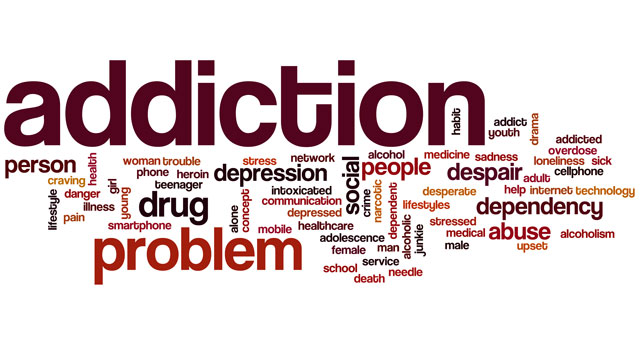Saying addiction is a disease sometimes is a controversial topic. Addiction has a massive stigma floating around it and often people argue that “the person chose to do drugs.” While this is true, people often overlook the fact that addicts do not choose to become addicted. It is always a personal choice to experiment with drugs or alcohol, but some people just react differently once they try it. Addiction is a disease because of what follows “the first time,” opposed to trying drugs in the first place.
Let me explain a little further. College drinking is a major problem in the United States. Many students engage in dangerous binge drinking, night after night. Though this may resemble alcoholic tendencies, many of these students go on to graduate college and stop their unhealthy drinking habits. A smaller percentage of these students do not. Their drinking habits continue to progress. They may try to stop or moderate, just to find that they cannot. It often baffles these drinkers that their counterparts can easily grasp control of their drinking. This is the true nature of alcoholism.
Addiction is a disease in this sense because though the group was once drinking in the same unhealthy manner, only a small percentage was unable to stop. This small group characterizes a disease because it is progressive, deadly, and uncontrollable. Though they want to stop, often they simply cannot stay stopped. Some part of their brain cannot “handle” alcohol in a normal fashion. Here are some more reasons why addiction actually is a disease.
It’s Chronic
Addiction is a disease as defined by American Medical Association. Addiction is chronic, meaning that it often comes back time and time again while being difficult to manage. Addicts and alcoholics often attend long-term treatment programs, support groups, and detoxes. This cycle can be never ending for some. Even in the face of consequences and other medical conditions, addicts will continue to use. Just like any other disease, addiction will always be lying beneath the service, even if under control. It can be easy for a “recovered” addict to fall right back into their unhealthy behavior.
It’s Progressive
Left untreated, addiction is a progressive disease. Just like cancer, an infection, or a virus, addiction continues to get worse and worse over time. An unaware alcoholic who is a heavy drinker in college may become completely dependent on alcohol in years to come. If even further left untreated, this could progress to liver disease. Some alcoholics even continue to drink after being diagnosed with liver disease. This is because a mental obsession in their brain will not allow them to stop. Many alcoholics even drink themselves to death, with full knowledge and warning. John Phillips of the famous 1960’s band The Mamas and The Papas, a self-proclaimed alcoholic, admittedly drank days after a liver transplant. This is a perfect example of the type of progression addiction can have.

Behavioral, Environmental and Biological Factors
According to the the National Center on Addiction and Substance Abuse, addiction is a disease. They stated: “Like diabetes, cancer and heart disease, addiction is caused by a combination of behavioral, environmental and biological factors. Genetic risks factors account for about half of the likelihood that an individual will develop addiction.” So, just like another disease, addiction is not just caused by an initial choice. Many addicts are predisposed to addiction without their knowledge. Addiction frequently runs in families with no basis on who exactly it will affect. It is still not understood how exactly genetics work with addiction, but it is widely accepted that genes play a significant role.
Substance abuse also permanently changes the brain over time. Substances release chemicals in the brain that are associated with reward, resulting in a “high.” The longer a person uses a substance, the more their brain becomes ineffective in releasing these chemicals. A person soon feels they need a substance to function or feel normal. This results in dependence and progression of the mental obsession with substances.
Addicts and alcoholics also frequently have troubled pasts. Trauma, grief, and loss or alcoholic households can have significant effects on a young person. This can change the brain from an early age, specifically the function of reward chemicals in the brain. Addicts may already have a dysfunctional reward system prior to drug use, resulting in a “stronger high.” This can become extremely addictive when a person has been living with depression or anxiety. The feeling of relief may lead a person to self-medicate. This self-medication, over time, turns into a chronic illness and obsession that is nearly impossible to break.
So Should Addicts Be Responsible for Their Actions?
Addicts should not be held responsible for their addiction itself, but they should be held responsible for treating their illness. Just like cancer or diabetes, it is up to the affected person to seek treatment and continue medications. You cannot force a person to overcome a disease, but you can support them and hold them accountable for continuing treatment. It is the same with addiction. Addicts should have strong accountability networks and healthy boundaries. If they continue to harm others and lie, cheat, and steal, then consequences should follow. Addicts may need more support and pressure to seek treatment though, which is OK.
Seeking Treatment for Alcoholism and Addiction
Getting clean and sober from drugs and alcohol is the most important thing that an addict or alcoholic can do in their life. At Pinnacle Recovery, we understand this and we are here to help you through the anxiety that going to a treatment center for drugs and alcohol can bring. With help from our professionals, you can find a new life in sobriety with the least amount of resistance possible, and you can learn what it means to achieve a sustained and happy recovery. So call us today at 1-866-301-0573 and begin your journey to recovery the right way, with Pinnacle Recovery.






